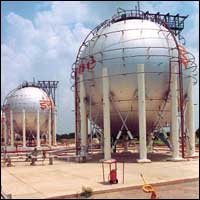The government’s move towards market linked gas pricing is a major reform undertaken in the context of energy security, Petroleum and Natural Gas Secretary Vivek Rae said at the recently held Energy Security Conference in New Delhi.
Addressing the Conference, Rae pointed out that the new gas pricing formula put in place by the MoPNG and due to become operational from April 1st, 2014, was a step towards aligning the domestic natural gas prices with global prices and nudging the gas price towards import parity prices. He added that the MoPNG was working closely with operators and efforts were being made to streamline the decision making process.
Rae emphasized that there was no policy paralysis in the oil and gas sector. He stressed on the need to strengthen research and development in energy sector and highlighted the importance of undertaking collaborations and capitalizing on the synergies amongst the Ministries of Power, Oil and Gas and Renewable Energy. He said that a fiscal regime that promoted and encouraged exploration and production activities needed to be put in place for getting returns in terms of royalty, tax revenues and import substitution.
Focusing on some of the issues that the MoPNG is looking into at present, Rae said that work was in progress for making available adequate data on the sedimentary basins, skilling the existing work force and also harnessing retired talent in the country, authorizing the private sector to prospect for shale oil and gas within the existing contract and evaluating strategies for stimulating the domestic manufacturing industry for oil rigs and LNG tankers in the country.
Speaking at the Conference, Joint Secretary (Energy Security and Investment and Technology Promotion) at the Ministry of External Affairs Prabhat Kumar highlighted the three key global energy trends.
“India will emerge as the biggest growth center of energy by 2020. While this implies that the Indian economy is likely to continue to grow, there are also questions on how we will pay for this demand given our strong reliance on fossil fuel imports. In addition, some of the biggest energy importers like the US are becoming energy exporters. Finally, the Middle East may become a key consumer of oil and gas and this may affect their export surplus adversely,” he said.
Kumar stressed on the need to capitalize on the opportunities presented by the key developments.
“The Middle East region presents a huge opportunity for India as this region will be increasingly catering to Asia rather than the northern hemisphere. In addition, sovereign wealth funds in these countries have grown considerably and India can look at collaborations with countries in this region to develop pipelines, petrochemical complexes etc. In addition, we can capitalize on the strong demand for human resources in this sector both globally and within India. We can invest in our human resources and equip them with the right skill set to enable them to undertake projects in other countries,” he said.











